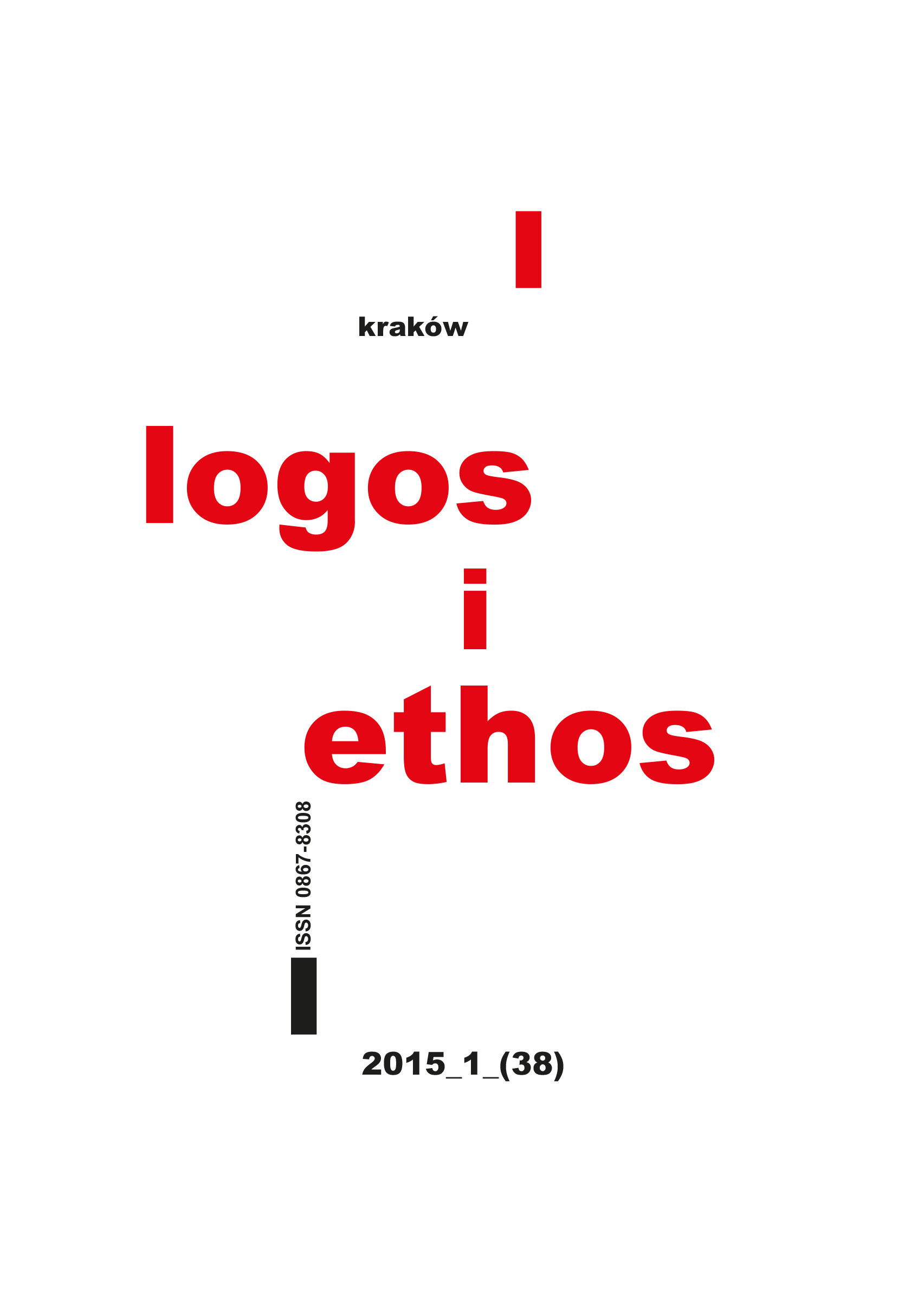The relationship between will and reason in the moral philosophies of Kant and Aquinas
DOI:
https://doi.org/10.15633/lie.1047Słowa kluczowe:
Aquinas, Kant, will, reason, ontological foundation of moral actionAbstrakt
Both Kant and Aquinas ground moral action in reason and will; however, this seems to be the end of the similarity in their approaches with respect to the role of reason and will in moral action. The goal of this essay is to show that Aquinas’ notion of the will as the rational appetite is superior to Kant’s notion of good will in providing the foundation for moral action. To this effect, I analyze the relationship between will and reason in their moral philosophies. I discuss Kant’s notion of will in both its moral and phenomenal modes, and Aquinas’ notion of will as the rational appetite and of human act. I argue that Aquinas’s notion of will and moral act is superior to that of Kant for several reasons. First and foremost, the notion of morally worthy action accommodates human nature with its inclinations, tendencies, and desires. It is not divorced from human physical and emotional nature. Second, in contrast to Kant’s will, Aquinas’s will retains its own identity. That is, it avails itself of reason’s search for truth and meaning, yet it does not collapse into reason, specifically logic. Third, Aquinas’ will is dynamic. In contrast to Kant’s, which in order to be moral simply follows the laws of logic, Aquinas’ will desires the good and propels a person to action. Finally, Aquinas’ notion of human act, in the sense that it involves both the counsel of reason and will’s capacity to desire the good, offers a more holistic understanding of human moral act and its possible consequences. In contrast to Kant’s will’s rigid command to obey the law, Aquinas’ notion of will and human act also gives reasons why we need to be moral. We must act morally, not only because our action would otherwise be self-contradictory or not live up to the letter of the law, but because our choices and our actions have real consequences in the world.
Bibliografia
Aristotle, De anima, transl. J. A. Smith, New York 1941.
Aristotle, Nichomachean ethics, Bk. 1, transl. D. Ross, Oxford 1925.
Coppleston F., A history of philosophy, v. 5, Ch. 16 (3), London 1991.
Gilson E., The Christian philosophy of St. Thomas Aquinas, New York 1956.
Hume D., Enquiry concerning human understanding, [w:] The english philosophers of the 17th and 18th centuries, New York 1910 (Harvard Classics, 37, ed. Ch. W. Eliot), https://ebooks.adelaide.edu.au/h/hume/david/h92e/.
Kant I., Critique of pure reason, transl. N. Kemp Smith, New York 1965, Preface to the first edition.
Kant I., Groundwork of the metaphysics of morals, transl. H. J. Patton, New York 1964.
Kierkegaard S., Fear and trembling, transl. A. Hannay, Harmondsworth 1985.
Scruton R., Kant: a very short introduction, Oxford 2001.
St. Thomas Aquinas, Summa theologica. Prima pars, transl. Fathers of the English Dominican Province, New York 1948.
Wojtyła K., Person and community: selected essays, transl. T. Sandok, [in:] Catholic thought from Lublin, v. 4, ed. by A. N. Woznicke, New York 1993.
Pobrania
Opublikowane
Numer
Dział
Licencja
Prawa autorskie (c) 2015 Anna M. Rowan

Utwór dostępny jest na licencji Creative Commons Uznanie autorstwa 4.0 Międzynarodowe.
Autorzy publikujący w czasopiśmie udzielają jego wydawcy zgody o następującej treści:
- Autor zachowuje autorskie prawa majątkowe do utworu, a jednocześnie udziela wydawcy czasopisma zgody na jego pierwszą publikację w wersji drukowanej i wersji online na licencji Creative Commons Uznanie autorstwa 4.0 Międzynarodowe oraz zgody na wykonywanie opracowań, w tym przekładów.
- Autor ma możliwość udzielania zgody niewyłącznej na opublikowanie utworu w wersji, która ukazała się w czasopiśmie (np. zamieszczenia go w repozytorium instytucjonalnym lub opublikowania w książce), wraz z informacją o jego pierwszej publikacji w czasopiśmie.
- Autor może umieścić swój utwór online (np. w repozytorium instytucjonalnym lub na swojej stronie internetowej) jeszcze przed zgłoszeniem utworu do czasopisma.

